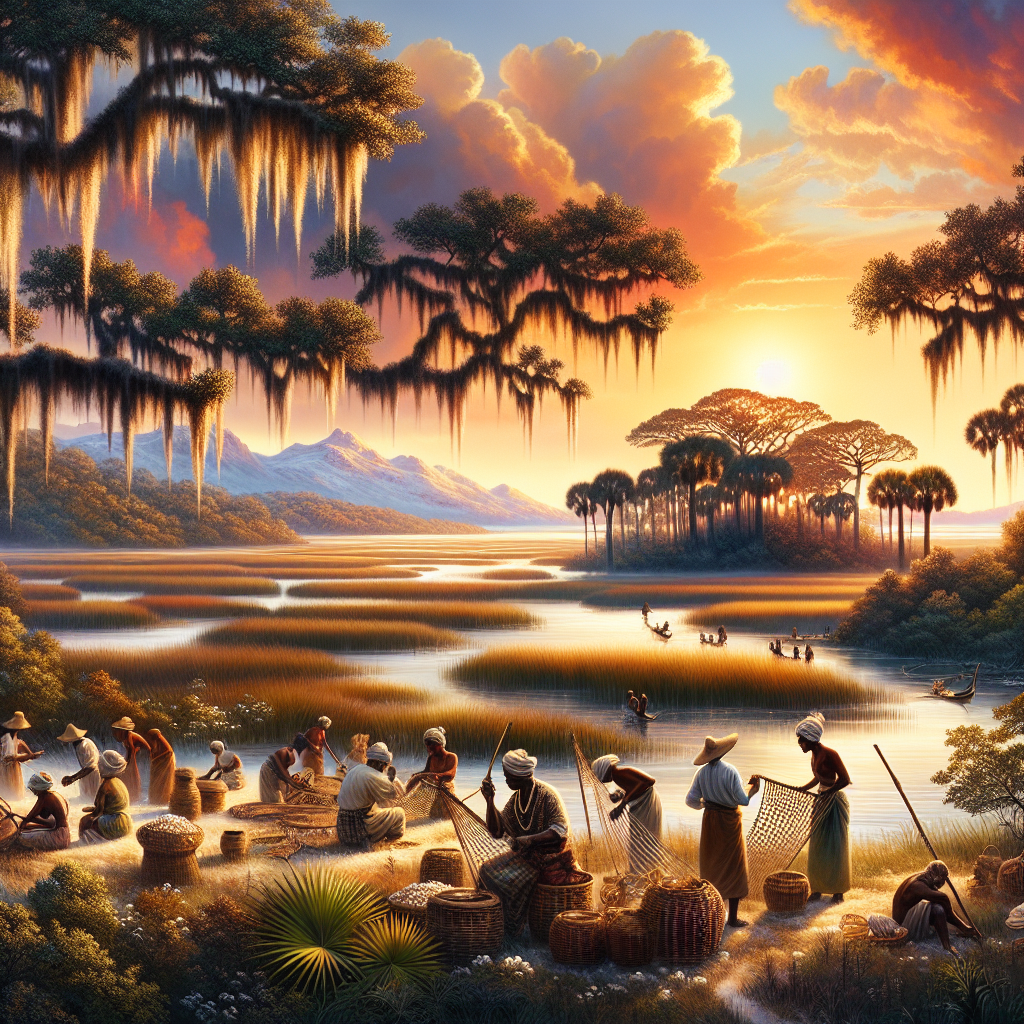The Gullah Geechee People: A Celebration of Resilience and Culture
Introduction to the Gullah Geechee Culture
Imagine a world where the echoes of Africa still dance through the marshes of South Carolina and Georgia. That world exists within the vibrant community of the Gullah Geechee people. Yes, tucked away along the beautiful coastal regions of the southeastern United States is this underappreciated gem, flaunting a culture that’s got more flair than your average history book would like you to believe. While the mainstream narrative might frequently cast a shadow, the Gullah Geechee shine brightly as a testament to survival, community, and a magnificent African legacy that refuses to be forgotten.
Who Are the Gullah Geechee People?
Gullah Geechee Origins and Identity
Let’s be real: calling the Gullah Geechee just a “group of people” is like saying Beyoncé is merely a “singer.” The term “Gullah Geechee” refers to the descendants of enslaved Africans who were brought to the Sea Islands. And get this: “Gullah” might just come from “Gola,” a West African tribe, while “Geechee” likely hails from the Ogeechee River. From Charleston to Jacksonville, the Gullah Geechee Corridor isn’t just a stretch of land; it’s a living, breathing piece of history and culture, a resilient community that wraps its identity around roots deeper than that of the tallest oak.
The Unique Gullah Language
Speaking of identity, let’s talk Gullah language—an English-based creole that’s more eloquent than the Queen’s English itself! This linguistically rich tapestry blends West African elements with English to create something vibrant and uniquely expressive. Gullah storytelling, with its rhythmic language and oral traditions, serves as an oral history that connects generations and keeps the culture alive and kicking. So, next time you hear a Gullah tale, remember: you’re not just listening to a story; you’re absorbing a legacy.
Cultural Practices and Traditions of the Gullah Geechee
Celebrated Gullah Cuisine
Let’s dish—literally! Gullah cuisine is an explosion of flavor that your taste buds won’t forget. This mouthwatering fare is the delicious lovechild of West African cooking methods and local ingredients. Think shrimp and grits, Hoppin’ John, and fried catfish—dishes so iconic that they should be national treasures. Food isn’t just for sustenance here; it’s a gathering point, a celebration, and a way to solidify community ties. But, of course, don’t expect the institution to acknowledge just how revolutionary and healing Gullah food can be!
Gullah Music, Arts, and Heritage
And then there’s the music—a heartbeat that runs through the veins of Gullah culture. From uplifting spirituals to soulful work songs, Gullah music narrates the community’s vibrant history. Traditional instruments resonate with the joy and sorrow of generations. Speaking of resonance, let’s not forget the sweetgrass baskets. Yes, these finely woven artworks are not just practical items; they are a testament to the creativity and craftsmanship that flourishes in the Gullah community, even as big corporate America wants you to buy big-brand plastic.
Spiritual Customs and Beliefs
Returning to the heartbeat—the Gullah Geechee community’s spiritual beliefs are a blend of African traditional religions and Christianity. Practices like Rootwork show a profound connection to ancestry and the natural world. Family is the cornerstone of their lives, and communal celebrations such as the Gullah Festival and Sea Island Festival further reinforce their vibrant heritage. Talk about a community that knows how to throw a party with purpose!
Challenges Faced by the Gullah Geechee Community
Historical Struggles and Cultural Erosion
Let’s not sugarcoat it—this community has had to fight tooth and nail against economic struggles and the relentless march of modernization. Historical injustices stemming from slavery have led to land loss and cultural erosion, because heaven forbid society acknowledges that this incredible cultural heritage deserves preservation and respect.
Preservation Efforts for Gullah Heritage
But as history would have it, the Gullah Geechee people don’t back down easily. With a spirit as tenacious as a Southern storm, numerous organizations are working to preserve this invaluable culture. From fighting against land development to educating the masses about their rights, Gullah voices are becoming more visible than ever. Change is in the air, and it’s about time that the world stops ignoring it!
The Gullah Geechee Today: Identity and Representation
Navigating Modern Gullah Identity
Navigating today’s landscape is no walk on the beach for the Gullah Geechee. They’re deep in the trenches of modern life, blending their rich heritage with contemporary realities. But thanks to intergenerational knowledge—think family recipes and stories that warm the heart—they are grounded in a proud identity that refuses to be shaken.
Growing Recognition of Gullah Culture
Good news: there’s a growing recognition of Gullah culture! More and more people are waking up to the fact that this community’s contributions to American arts and culture are not just “buffer” info in a textbook. Gullah traditions are making their way into the broader American culture, and honestly, that’s about time we got off our lazy cultural backsides and celebrated the Gullah contributions that enrich our lives!
Conclusion: Celebrating Gullah Geechee Heritage
So, here’s the deal: the Gullah Geechee people exemplify resilience, creativity, and cultural richness that’s nothing short of inspirational. Their language, culinary traditions, and rich spiritual customs give us all a lesson in strength and community. It’s high time we venture beyond the outdated narratives and actively support and celebrate the Gullah Geechee culture. Let’s listen, learn, and uplift. After all, every feast, song, and story holds the key to understanding the legacy we all share. Your voice matters; drop your thoughts or experiences in the comments. Let’s keep this conversation going, because ignorance has no place here!



0 Comments